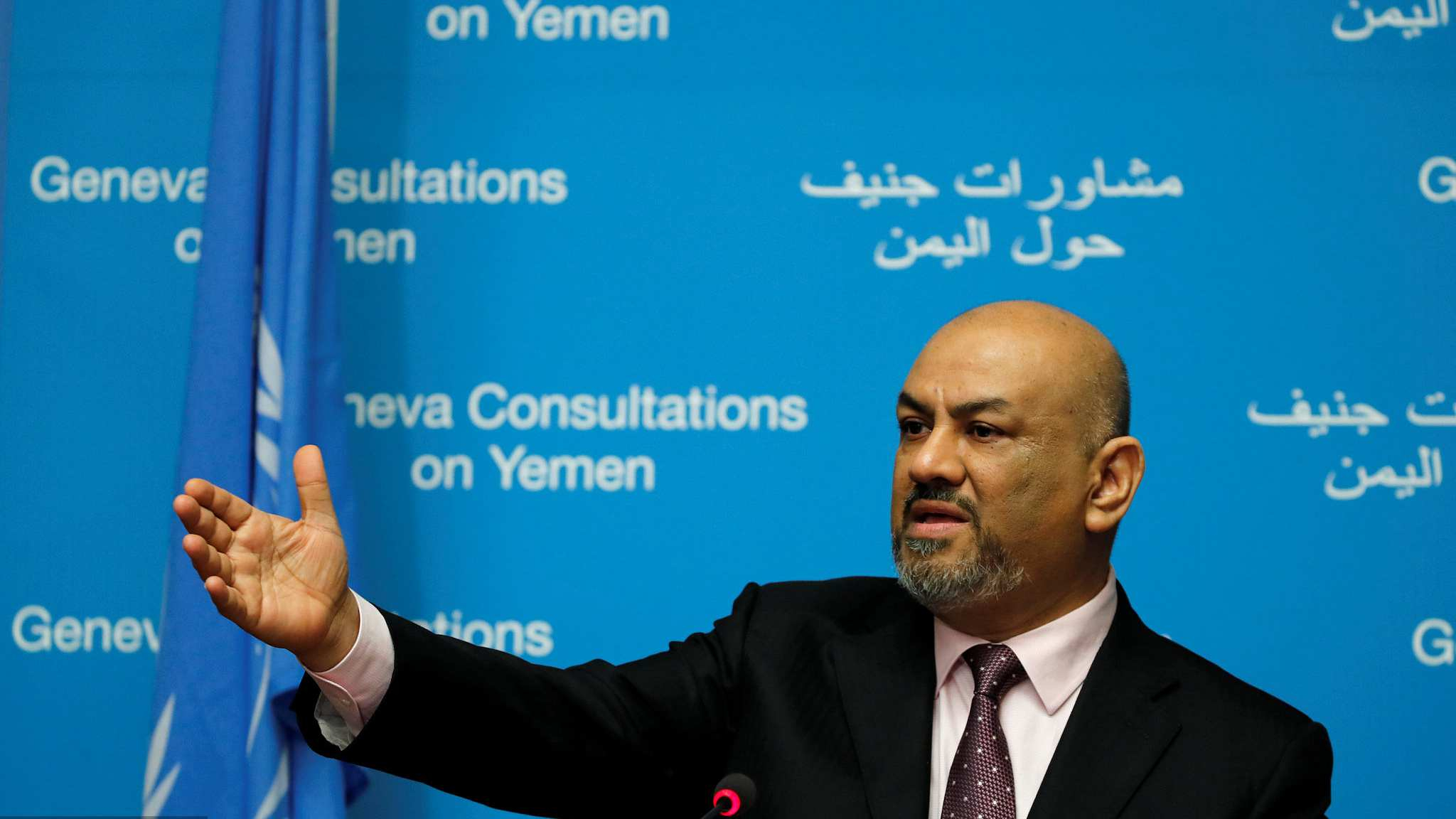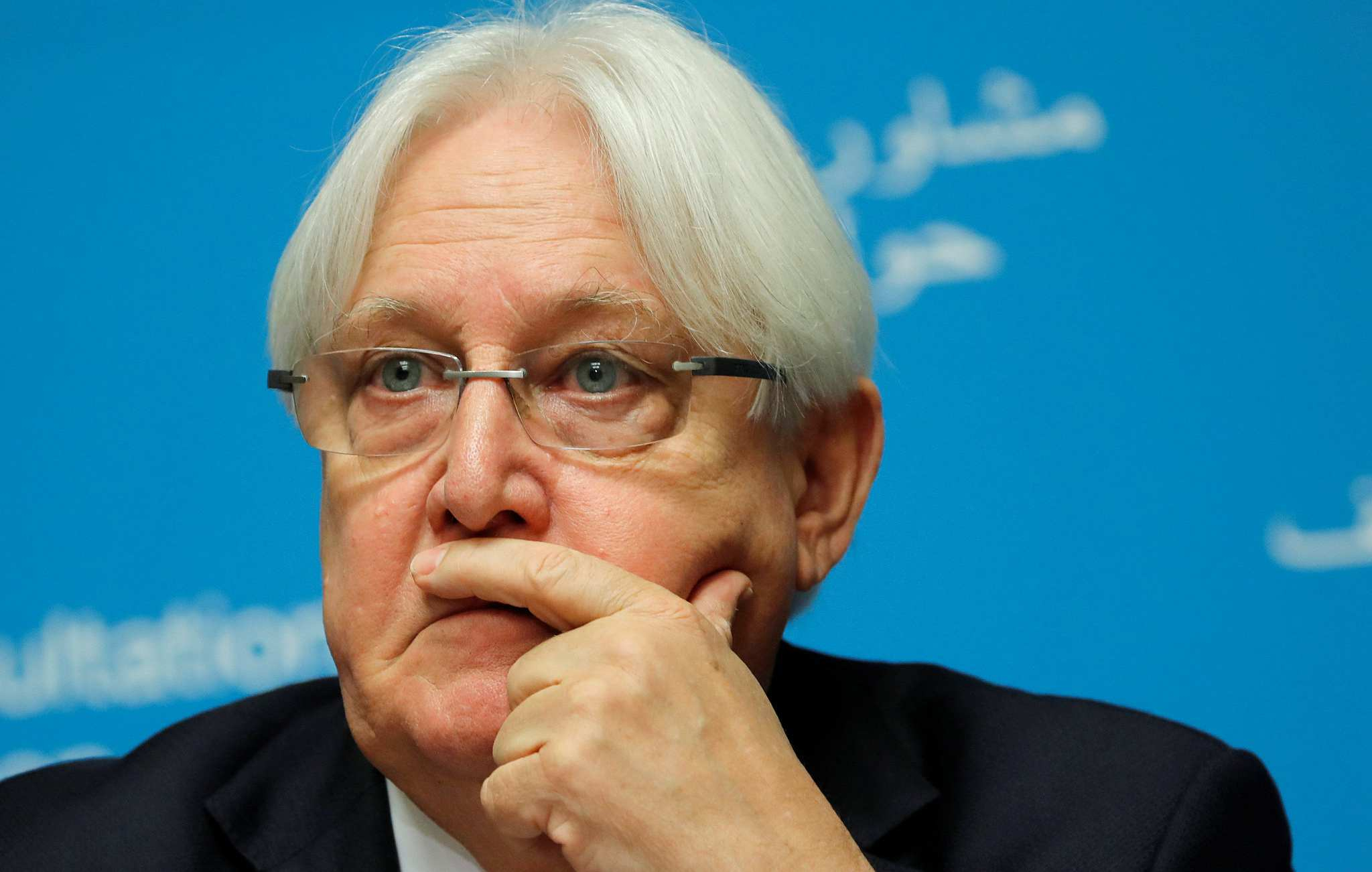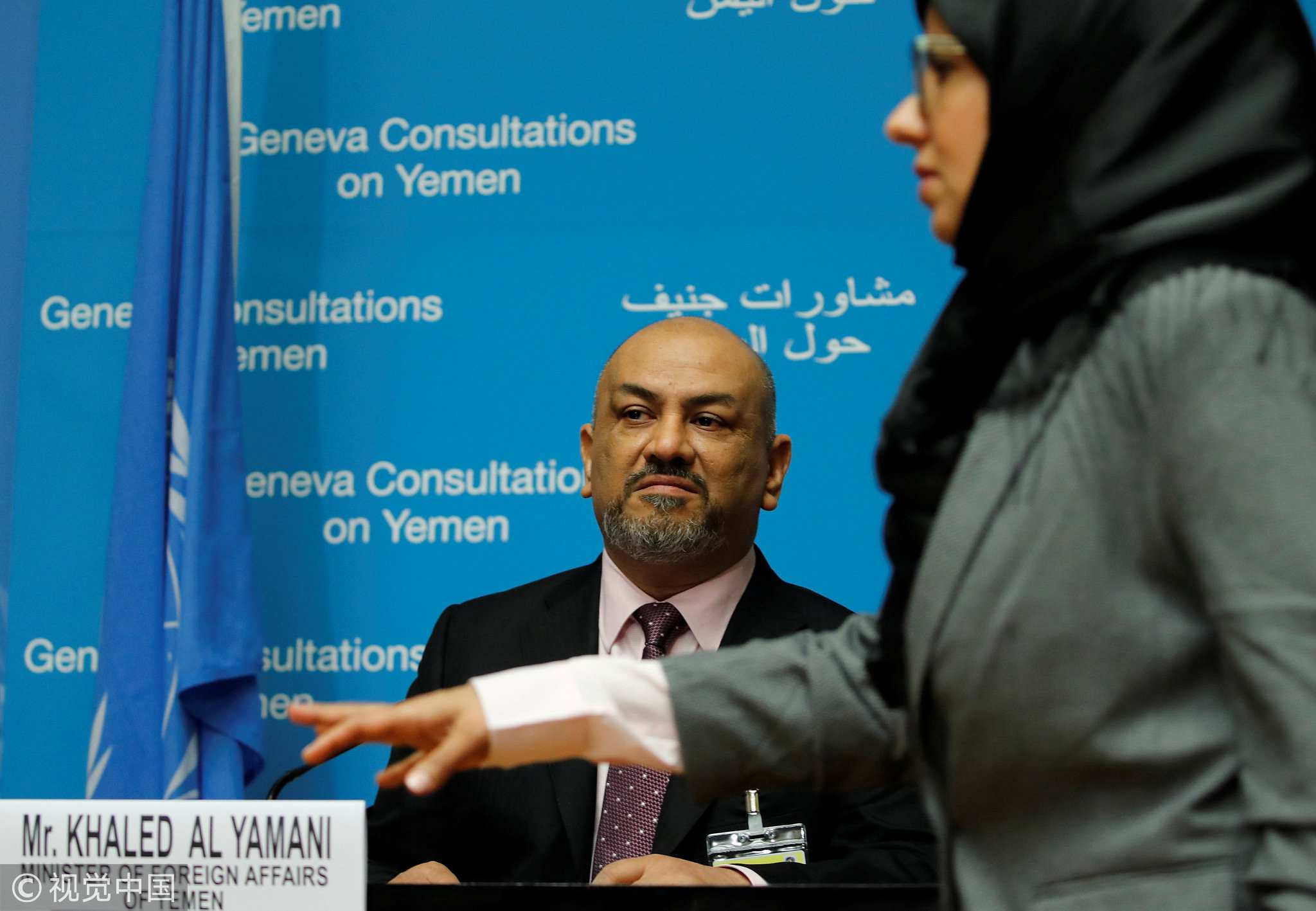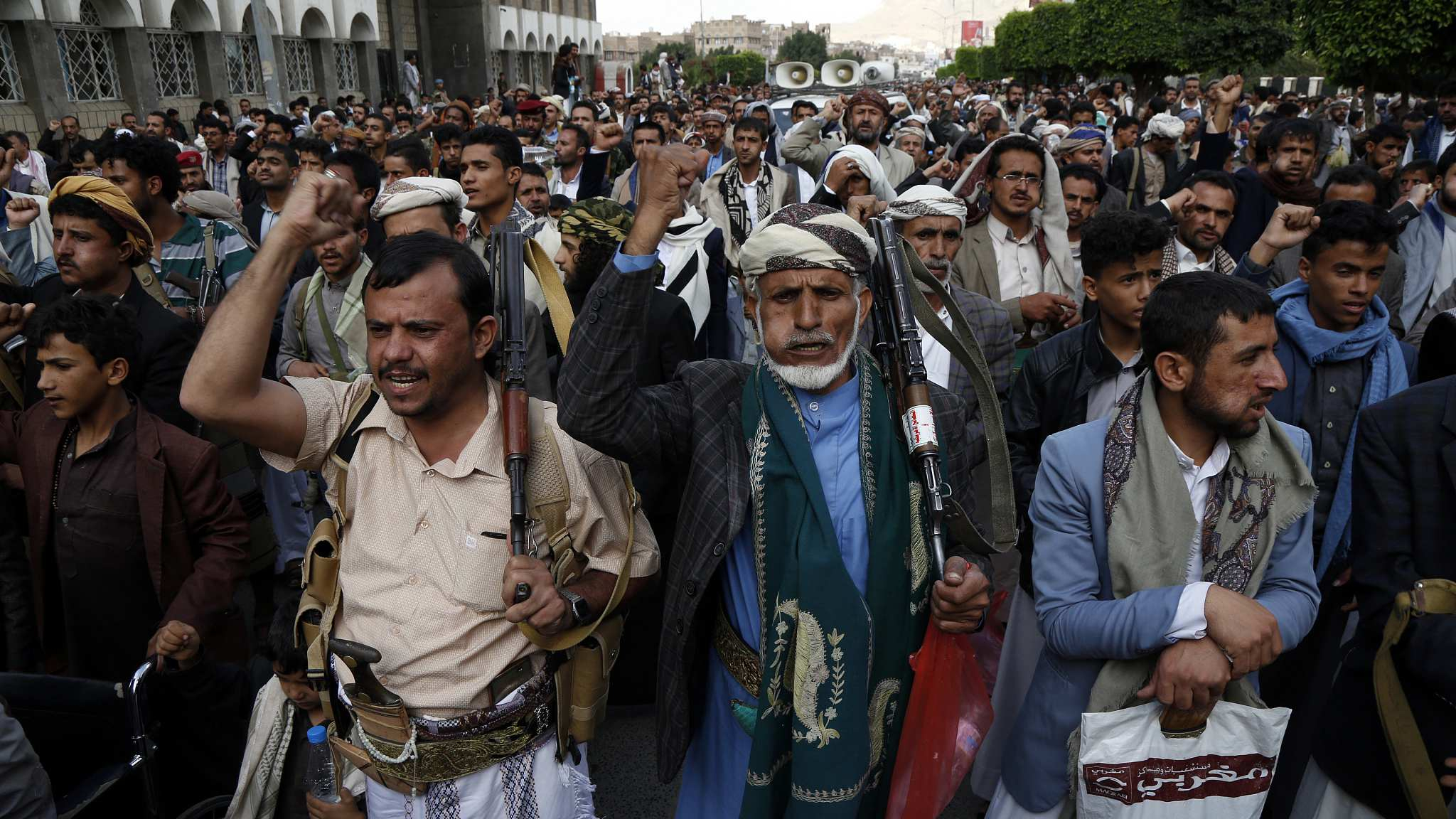
Politics
19:01, 08-Sep-2018
Yemen peace talks collapse as Houthi delegation fails to show up in Geneva
Updated
18:19, 11-Sep-2018
By Natalie Carney

The UN-backed Yemen peace talks in Geneva have ended early due to the lack of representation from the Houthi movement.
"We just couldn’t make it," said UN envoy Martin Griffiths.
The talks were scheduled to last five days but were cut short after only representatives from Yemeni President Abedrabbo Mansour Hadi’s delegation turned up.
Before leaving for Geneva, the Houthis wanted a number of conditions met, including the transport of wounded rebels to Oman and a guarantee that the Houthi delegation would be allowed to return to the rebel-held capital Sanaa after the talks.

UN envoy Martin Griffiths attends a news conference on Yemen talks at the UN in Geneva, Switzerland, Sept. 8, 2018. /VCG Photo
UN envoy Martin Griffiths attends a news conference on Yemen talks at the UN in Geneva, Switzerland, Sept. 8, 2018. /VCG Photo
UN-brokered peace talks in 2016 collapsed after 108 days of negotiations produced no deal.
But there was a "flickering" amount of hope that this round might lead towards the rebuilding of trust between the two warring sides.
According to Griffiths, the talks were meant to be informal and focus on how formal peace negotiations would work. The substance would come later.
Yemeni Foreign Minister Khaled al-Yamani called the Houthis absence a "huge mistake," adding that he believed a dispute within the movement on who should represent them in Geneva was also to blame.

Yemen foreign minister Khaled al-Yamani attends a news conference on Yemen talks at the UN in Geneva, Switzerland, Sept. 8, 2018. /VCG Photo
Yemen foreign minister Khaled al-Yamani attends a news conference on Yemen talks at the UN in Geneva, Switzerland, Sept. 8, 2018. /VCG Photo
Hamzah Al Kamaly, another representative from Yemeni President Abedrabbo Mansour Hadi's delegation, said the Houthis absence demonstrated they are against peace.
"We came here, as strong as we are on the ground, to prove something, that we are, we prefer peace. We want peace. We want this humanitarian catastrophe to end. But we believe this will end as much as Houthis will withdraw from the cities, hand over their weapons and go as a political party."
A recent report by the UN Human Rights Council states that all parties could be guilty of war crimes for making little effort to minimize civilian casualties.
The warring parties are also accused of arbitrary detentions, torture, enforced disappearances and recruiting children.
Since the war in Yemen began in 2015, Saudi Arabia and Sunni Muslim allies have been fighting against the Iran-aligned Houthis, who control much of north Yemen including the capital Sanaa.

Yemeni protesters chant slogans while they participate in a protest staged against the Saudi-led coalition in their preventing the Houthi delegation from traveling to Geneva to attend the new UN-sponsored peace talks in Sana'a, Yemen, on Sept. 7, 2018. /VCG Photo
Yemeni protesters chant slogans while they participate in a protest staged against the Saudi-led coalition in their preventing the Houthi delegation from traveling to Geneva to attend the new UN-sponsored peace talks in Sana'a, Yemen, on Sept. 7, 2018. /VCG Photo
In the last three years, more than 10,000 people have been killed and 8.5 million pushed to the brink of starvation in what has become what the UN says the world’s worst humanitarian disaster.
Several ceasefires have been attempted, many Security Council resolutions passed, but nothing is leading towards peace in the country.
While two days of consultations in Geneva between the UN Envoy and Yemeni government delegation centered on confidence-building including a possible prisoner swap, humanitarian access, the reopening of Sana’a airport and economic issues, little could be accomplished with only one party present.
While few believed any significant breakthroughs would come from these talks, they have been the most concrete efforts made towards peace in Yemen over the last two years, said Griffiths.
"The people of Yemen, like in any other conflict, are desperately in need of a signal of hope. We'd like to think that the work we will do together in these next days will begin to send a flickering signal of hope to them," he added.
8214km

SITEMAP
Copyright © 2018 CGTN. Beijing ICP prepared NO.16065310-3
Copyright © 2018 CGTN. Beijing ICP prepared NO.16065310-3